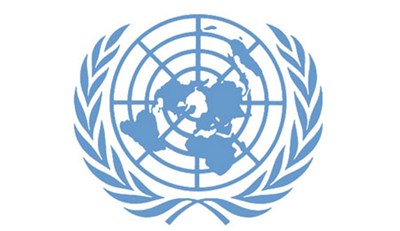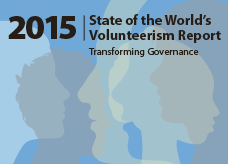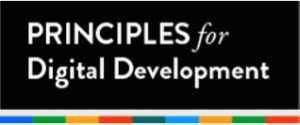 Based on comments I’m reading on Facebook and emails I get, there are some misunderstandings among a lot of people about three major volunteer-sending organizations: VSO, UN Volunteers and even Peace Corps. These misunderstandings lead to frustrations about what these organizations are looking for in candidates, and also leads to some perfect candidates not even considering applying to any of these organizations. I’m going to try to tackle some of these common misconceptions into today’s blog:
Based on comments I’m reading on Facebook and emails I get, there are some misunderstandings among a lot of people about three major volunteer-sending organizations: VSO, UN Volunteers and even Peace Corps. These misunderstandings lead to frustrations about what these organizations are looking for in candidates, and also leads to some perfect candidates not even considering applying to any of these organizations. I’m going to try to tackle some of these common misconceptions into today’s blog:
I’m going to try to tackle some of these common misconceptions into today’s blog. But please know that none of the following statements are official statements by any of these programs. These are my views, based on my experience working with these organizations and observing their work for more than a decade:
- Each of these organizations require at least a six-month commitment, and most of their assignments require a two-year commitment. These aren’t programs for “I want a feel good work abroad experience for a few weeks” – these are real humanitarian assignments that require a longer-term commitment than an extended vacation.
- These organizations are not for unskilled people who want to “try out” humanitarian work. You need to have a great deal of real work experience and/or a Master’s degree to be in any of these programs. The average age of a UN Volunteer was 38 when I worked at HQ a decade ago, and I don’t think it’s gotten any younger. The average age of a Peace Corps volunteer, at the time of this blog’s publishing, is 28, but 7 percent of volunteers are over 50. You need an area of expertise and/or a project you have lead successfully that proves you could do a field assignment – and that project doesn’t have to be something you did outside of your homoe country – in order to be accepted in any of these three programs.
- UNV, VSO and PeaceCorps are excellent options for seasoned professionals from the for-profit sector that want to apply their skills in the developing world – but you will need much more than just that experience to make the cut and get to be a part of these programs. You need to represent on your application work that you’ve done, paid or as a volunteer, with high-poverty communities, people with low-literacy skills, people that are at-risk for poverty, crime or exploitation, populations different from the one you represent, religiously-conservative communities, etc. These organizations want to know that you have experience that will help you get through the challenges in a developing country, that every circumstance abroad won’t be utterly foreign to you.
- The application process for each of these organizations is highly competitive and the organizations reject MOST of the people that apply. These organizations want people who have résumés that show experience that proves applicants can do the job that is asked for. While I got a job at UNV HQ in 2001, I actually would NOT have qualified to be an actual UN Volunteer in the field at that time, because I lacked the experience to do so; I could support UN Volunteers, but I’m really not sure I could have been one myself at that time (now, I do feel I’m qualified, and have been accepted into the roster).
- Demand for volunteers through these programs changes frequently. There may suddenly be a need for people that have a great deal of experience working in government, that can help a country transition after conflict or independence. There may suddenly be a need for civil engineers. And just because someone with HIV/AIDS education for teens, or someone that’s run a vocational program, or someone with experience creating farming CO-OPs isn’t needed today doesn’t mean such won’t be needed in the next two years, so it’s a good idea to apply for these programs now even if they aren’t asking for someone urgently with your particular area of expertise.
- You might get accepted into the UNV program roster but never get a placement. Placement consideration starts with what skills are needed, and then recruitment or placement staff look at qualifying candidates in terms of a variety of factors, including nationality; if a particular country is funding a particular UNV assignment, they may want the chosen candidate to be from their particular country. It also can take many months between the time you are accepted as a candidate to the time you get a placement (if ever).
- You will be paid if you are accepted and get a placement in any of these programs. All of these agencies like to stress that these aren’t jobs and you don’t receive a salary, but the reality is: you are paid. Your travel and accommodation expenses will be paid, you get medical insurance, and you will receive a living allowance to meet reasonable living expenses in-country during your assignment. In fact, as a UNV, you get a stipend that is often the same of what a local government worker in the country where you would serve would get. However, most would agree that the stipend is not enough to have money left over to send home, pay debts you have back home, etc.
- You aren’t limited to the title “Peace Corps Volunteer” or “UN Volunteer.” You will, in fact, have a role that doesn’t have the word “volunteer” in it. You will be a maternal health care nurse, a clinic manager, an ESL teacher for women and children, a fisheries advisor, a communications manager, a public health educator, an IT manager, etc., with a local NGO or government agency in the country where you serve. You will have a specific role, and that’s what should be on your résumé or CV when you complete the assignment – that you did it under a UNV contract or whatever should be in your job description, because that is the contract under which you worked, but that title or role that describes what you did is what’s most important to a potential employer.
If the participants in these programs do receive compensation, what makes them volunteers? As someone who believes volunteer is merely a pay rate, and that it doesn’t have anything to do with level of skills, level of responsibility, motivation or commitment of a person doing that volunteer assignment, it’s a question I’ve struggled with. This is the conclusion I’ve reached: the United Nations, the US State Department, and various other entities that work overseas have different types of worker contracts. And in those agencies, when you call something a “job”, even just a “consultancy”, it comes with certain expectations on the part of the worker in terms of monetary compensation, because the people in these roles are doing this work full time as their careers, for many, many years. It’s how employees and consultants are paying for homes, putting their kids through school, paying family expenses, saving for retirement, etc. The vision of Peace Corps, VSO and UNV, at least on paper, is that the people that are volunteers through their programs aren’t necessarily people who are career humanitarians; they are professionals or highly-skilled people willing to give up six months to two years of their careers and fully compensated work in such to, instead, work as a part of a humanitarian endeavor overseas. Why do these agencies want these people? On paper, they say it’s because these programs can involve people in humanitarian work who aren’t career humanitarians, bringing in much-needed talent and experience that career humanitarians might not have – a bakery owner who goes to Africa for six months to help train local people in food safety and modern baking techniques, for instance. Or a police officer who goes to Afghanistan for six months and trains local police on recognizing and appropriately responding to domestic violence. The reality? I’m sorry to say that, for many agencies, it’s a way to save money; contracts through UNV, VSO and PeaceCorp are far, far cheaper than hiring someone as an employee or consultant outright.
A reminder that none of the aforementioned statements are official statements by any of these programs. These are my views, based on my experience working with these organizations and observing their work for more than a decade.
April 20, 2018 update: Here is a blog by Jasmin Blessing, a UN Volunteer with UN Women in Ecuador. It is a really nice example of what effective volunteering abroad looks like.
Also see:
Isn’t my good heart & desire enough to help abroad?
Using Your Business Skills for Good – Volunteering Your Business Management Skills, to help people starting or running small businesses / micro enterprises, to help people building businesses in high-poverty areas, and to help people entering or re-entering the work force.
How to Get a Job with the United Nations or Other International Humanitarian or Development Organization
Ideas for Funding Your Volunteering Abroad Trip – for those who want short-term volunteering opportunities abroad and who don’t have the high-demand skills needed for VSO, Peace Corps, UN Volunteers, etc.)



















